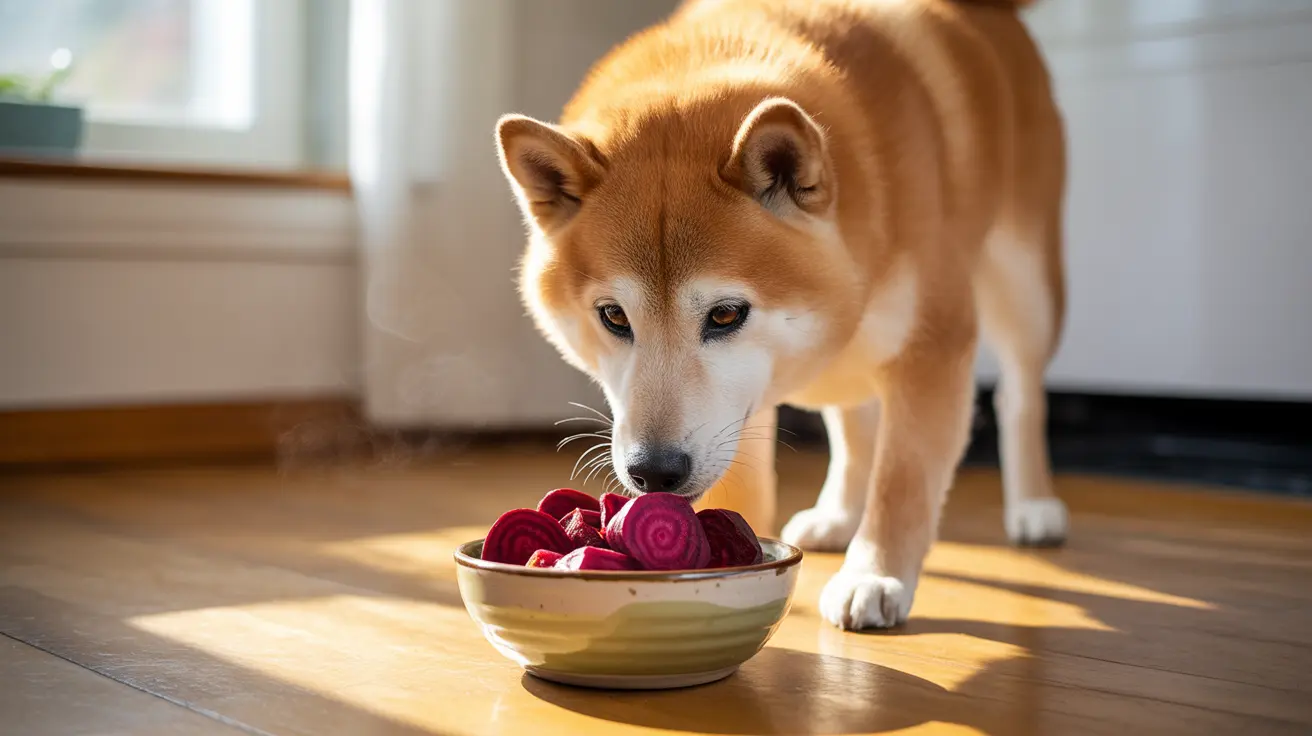If you're looking to add some variety to your dog's diet, you might be wondering whether beets are a safe option. The good news is that dogs can eat beets, and these colorful root vegetables offer several nutritional benefits when served properly. However, there are important guidelines to follow and precautions to consider before adding beets to your dog's menu.
In this comprehensive guide, we'll explore everything you need to know about feeding beets to your canine companion, including preparation methods, health benefits, potential risks, and proper serving sizes.
The Nutritional Benefits of Beets for Dogs
Beets pack a powerful nutritional punch that can complement your dog's regular diet. These root vegetables are rich in essential vitamins and minerals, including:
- Vitamin C for immune system support
- Vitamin B6 and folate for cellular health
- Iron for healthy blood formation
- Potassium for muscle function
- Fiber for digestive health
- Antioxidants for reducing inflammation
These nutrients can support your dog's overall health, including immune function, digestive processes, and cellular repair. The natural fiber content can also help maintain regular bowel movements and promote gut health.
Safe Preparation Methods for Feeding Beets to Dogs
The way you prepare beets can significantly impact their safety and digestibility for your dog. Here are the recommended preparation methods:
Cooking Methods
- Steam or boil until soft
- Bake without seasonings
- Puree for easier digestion
- Cut into small, manageable pieces
Important Guidelines
- Remove all leaves and stems
- Wash thoroughly to remove dirt and pesticides
- Serve plain without salt, oils, or seasonings
- Peel the beets before cooking for better digestibility
Portion Control and Frequency
While beets are safe for dogs, moderation is key. These root vegetables should only make up a small portion of your dog's diet:
- Small dogs: 1-2 small pieces
- Medium dogs: 2-3 small pieces
- Large dogs: 3-4 small pieces
Offer beets as an occasional treat, no more than 1-2 times per week. Remember that treats, including beets, should never exceed 10% of your dog's daily caloric intake.
Potential Risks and Warning Signs
Despite their benefits, beets aren't suitable for all dogs. Be aware of these potential risks:
Health Concerns
- High oxalate content can contribute to kidney stones
- Natural sugars may affect diabetic dogs
- Possible digestive upset in sensitive dogs
- Risk of choking if not properly prepared
Watch for These Symptoms
- Vomiting or diarrhea
- Excessive gas or bloating
- Signs of allergic reactions
- Changes in urinary habits
Frequently Asked Questions
Can dogs eat beets safely, and what are the benefits of including beets in their diet?
Yes, dogs can safely eat beets when properly prepared. Benefits include improved immune function, digestive health support, and added nutrients like vitamins C, B6, and minerals such as iron and potassium.
How should beets be prepared and served to ensure they are safe for my dog to eat?
Beets should be thoroughly washed, peeled, and cooked (steamed, boiled, or baked) without any seasonings. Cut them into small, manageable pieces to prevent choking, and always serve plain.
What are the potential risks or health concerns if my dog eats beets, such as digestive issues or allergies?
Potential risks include digestive upset, increased risk of kidney stones due to oxalates, and blood sugar concerns for diabetic dogs. Some dogs may also experience allergic reactions or difficulty digesting raw beets.
Can I use beets as a regular ingredient in my dog's meals, or are they best kept as an occasional treat?
Beets should be treated as an occasional treat rather than a regular meal ingredient. They should not exceed 10% of your dog's daily diet and should be offered no more than 1-2 times per week.
How can I introduce beets to my dog's diet without causing digestive upset or other health issues?
Start with a small piece of cooked beet and monitor your dog for any adverse reactions. Gradually increase the amount if well-tolerated, but always maintain moderate portions and frequency.
Conclusion
Beets can be a healthy addition to your dog's treat rotation when prepared and served appropriately. Remember to always introduce new foods gradually, monitor your dog for any adverse reactions, and consult with your veterinarian if you have specific concerns about adding beets to your dog's diet, especially if your pet has existing health conditions.






